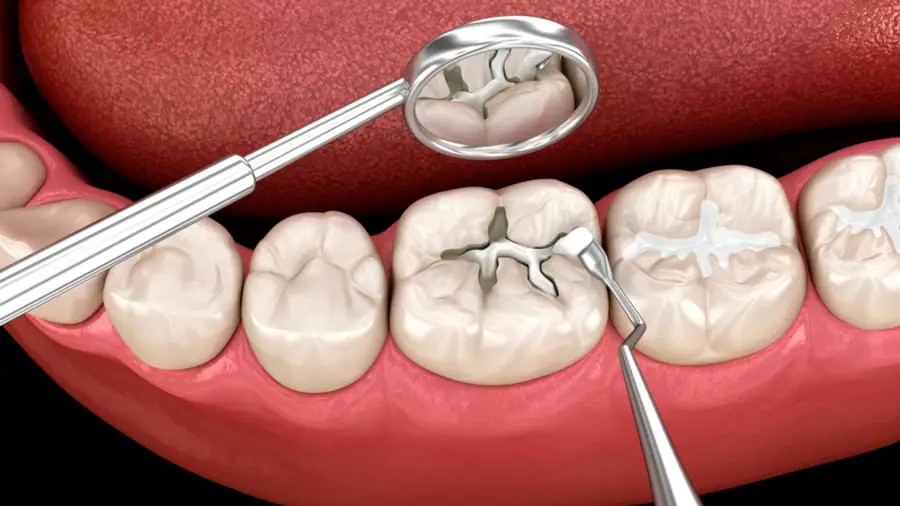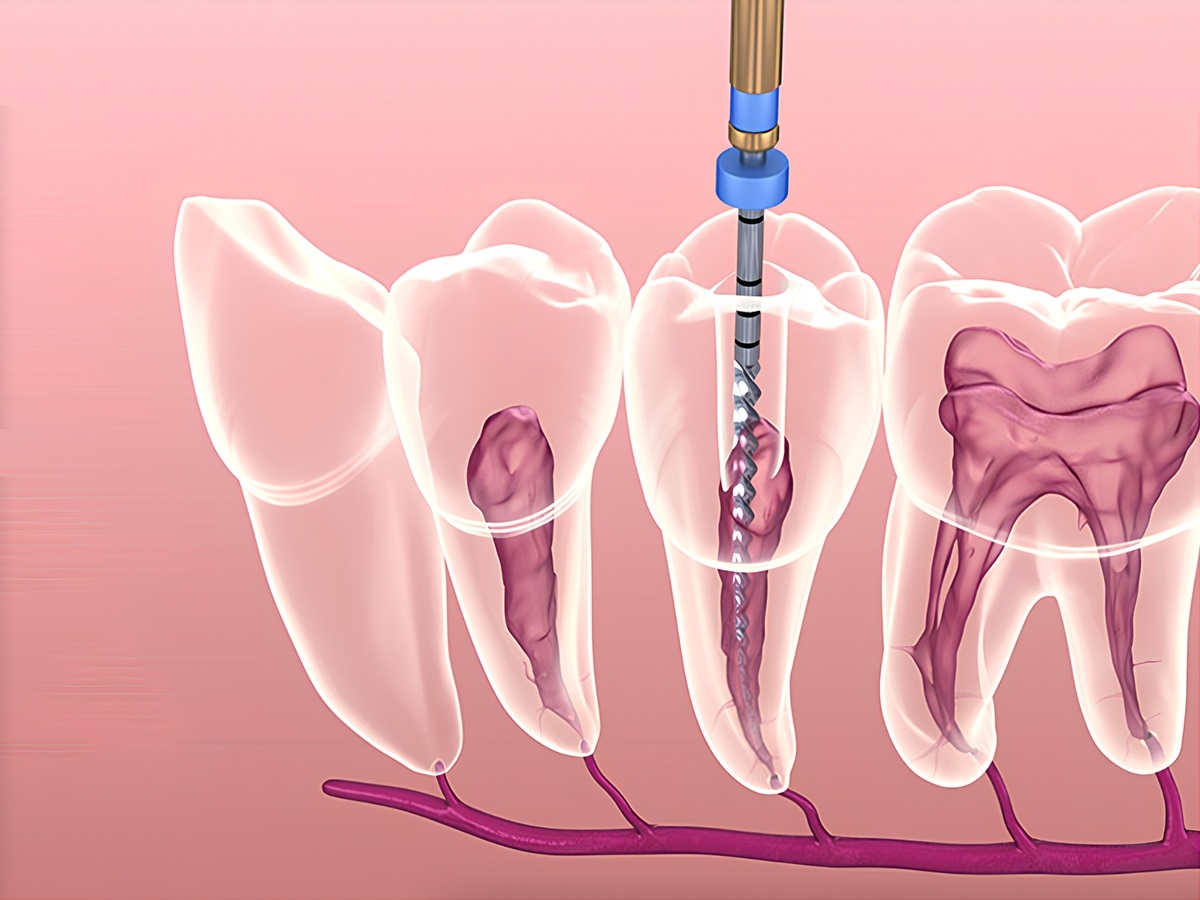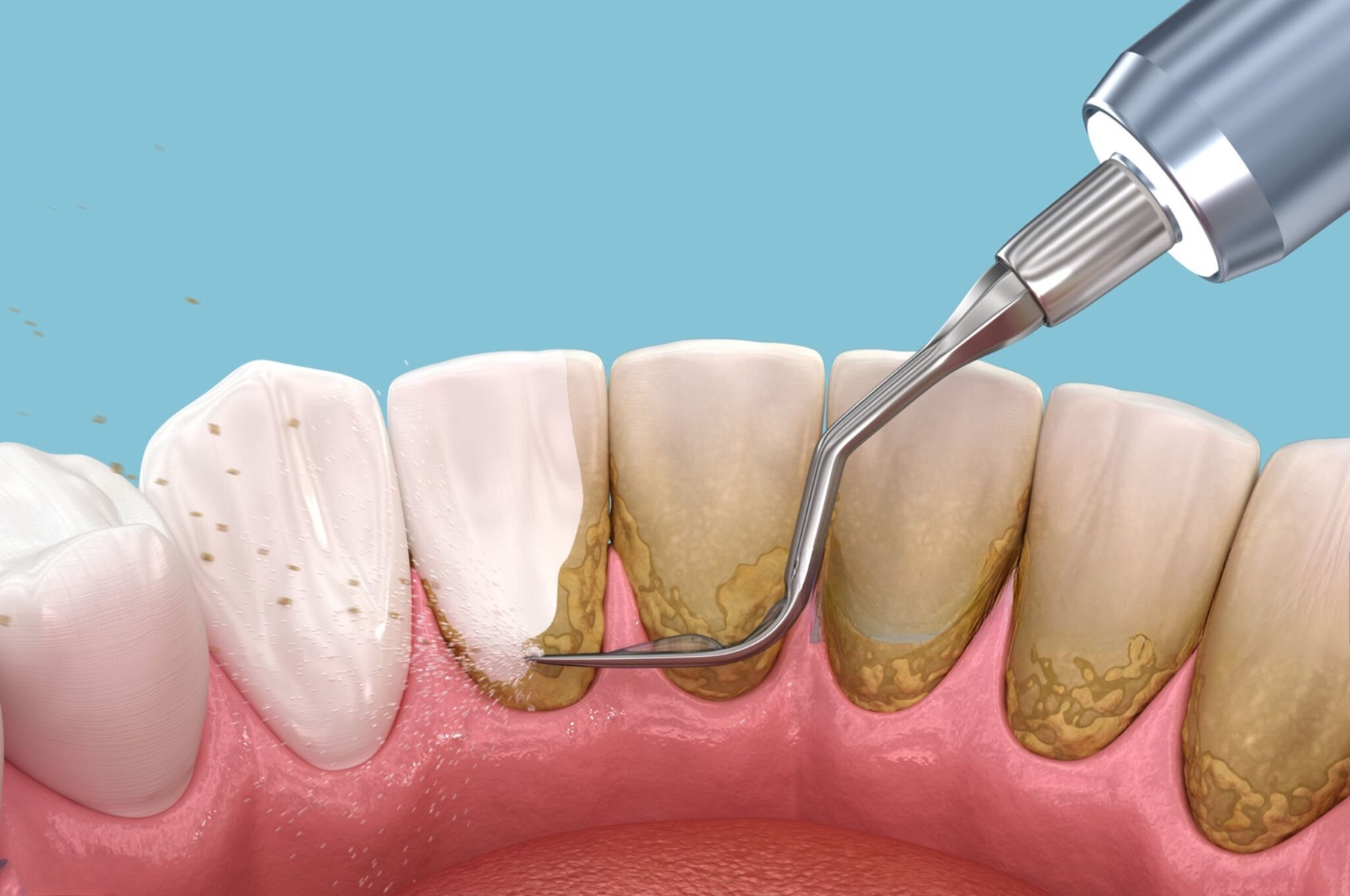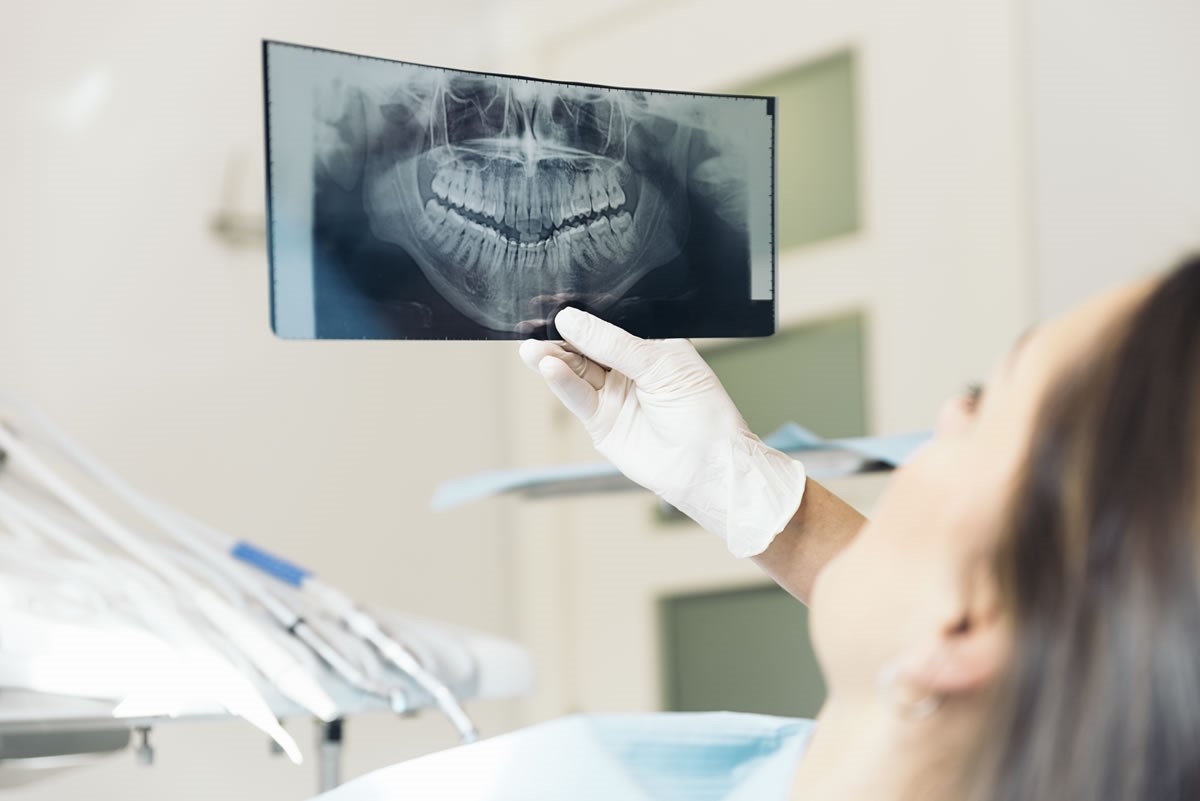Approximately 53% of the population has at least one wisdom tooth, and the risk of dental problems due to impacted wisdom teeth is very high. This condition can lead to severe toothache, infection, periodontitis, and many other serious complications. Therefore, dental experts often recommend removing impacted wisdom teeth to prevent future complications and consequences. Let’s explore the details with Amanda Dental Clinic in the article below!
What is wisdom tooth extraction?
Wisdom tooth extraction is a minor surgery to remove one or more third molars (wisdom teeth) located at the back of the dental arch. Dentists or oral surgeons perform this procedure to prevent complications caused by wisdom teeth, helping to limit damage to adjacent teeth and surrounding tissues.
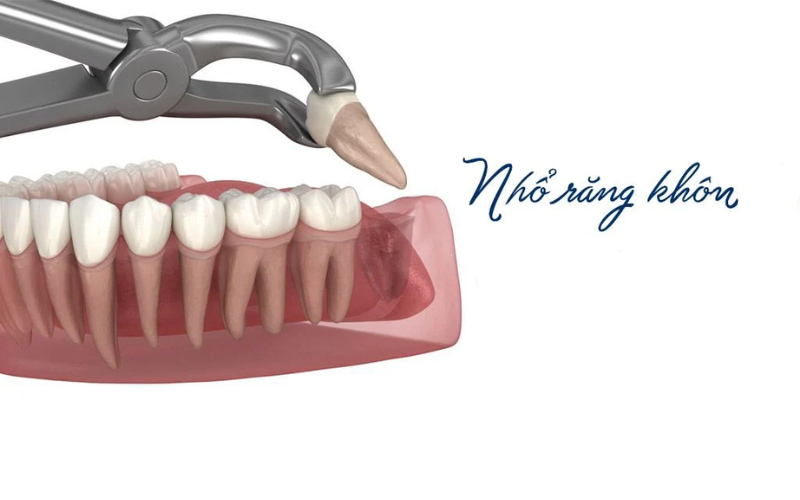
Wisdom teeth (also known as third molars) are located at the very back of the oral cavity. These teeth usually appear between the ages of 17 and 25 and are the last group of teeth to develop in the adult human dentition.
Wisdom teeth once helped human ancestors grind and chew leaves, nuts, roots, and raw meat. However, with evolution, wisdom teeth have become unnecessary. Humans now eat cooked food and use forks and knives to cut food into smaller, softer, and easier-to-chew pieces. As a result, the jawbone has become narrower, leaving insufficient space for wisdom teeth to erupt properly and perform their function.
The number of wisdom teeth can vary between individuals, with some having all four, while others may have only one, two, three, or none at all. This is not a cause for concern and is considered a minor evolutionary change in humans. However, problems arise when there is not enough space for wisdom teeth to grow normally, leading to impaction or partial eruption (impacted teeth), causing discomfort, inconvenience, and pain.
Wisdom teeth provide little benefit in chewing or aesthetics. Instead, they pose a risk of causing serious oral health complications. The American Dental Association (ADA) has highlighted several severe issues that may arise when wisdom teeth erupt. Specifically, food debris and bacteria can accumulate around the wisdom teeth, leading to:
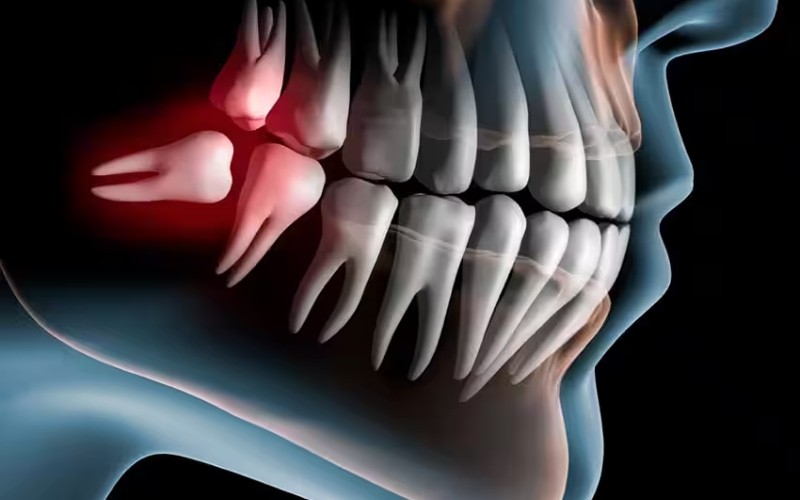
- Tooth decay due to bacterial accumulation around wisdom teeth.
- Gum disease (gingivitis or periodontitis) due to bacterial plaque.
- Pericoronitis from plaque-induced infection of soft tissues around the tooth.
- Cellulitis, a bacterial infection affecting the cheeks, tongue, or throat.
- Abscesses caused by pus accumulation in or around the wisdom tooth.
- Cysts and benign tumors can develop from impacted wisdom teeth under the gums.
Mild cases may be treated with antibiotics and mouthwash, but in severe cases or when other treatments are ineffective, extraction is necessary.
Does wisdom tooth extraction hurt?
NO. With skilled and experienced dentists, wisdom tooth extraction is usually quick and minimally painful. Before the procedure, the dentist will apply local anesthesia to ensure the patient feels no pain or discomfort. The patient might only feel pressure as the tooth is moved forward or backward, but no pain.
Even if gum surgery is required, the tooth will be sectioned into parts before extraction. The dentist will suture the gums to restore normal structure, ensuring the patient is comfortable.
Pain level depends on the anesthesia method, dental techniques, and the experience of the dentist. The procedure usually takes a few minutes, but harder-to-extract wisdom teeth may require 20–40 minutes.
When should and shouldn’t wisdom teeth be removed?
The decision to extract wisdom teeth depends on the specific dental condition of each individual. Below are cases when extraction is or isn’t necessary:
Cases when wisdom teeth do not need extraction
Not all wisdom teeth need to be removed. In some cases, preservation is possible:
- Wisdom teeth that grow straight, normally, not impacted by bone or gums, and cause no complications. In such cases, patients should use dental floss and specialized brushes for thorough cleaning.
- Patients with chronic illnesses such as cardiovascular disease, bleeding disorders, diabetes, etc.
- Wisdom teeth in proximity to critical structures like the maxillary sinus or nerve pathways.
Cases when wisdom teeth should be removed
Wisdom teeth can grow at various angles in the jaw, causing crowding or misalignment. This makes cleaning difficult and provides an environment for bacterial growth, increasing the risk of gum disease and tooth decay.
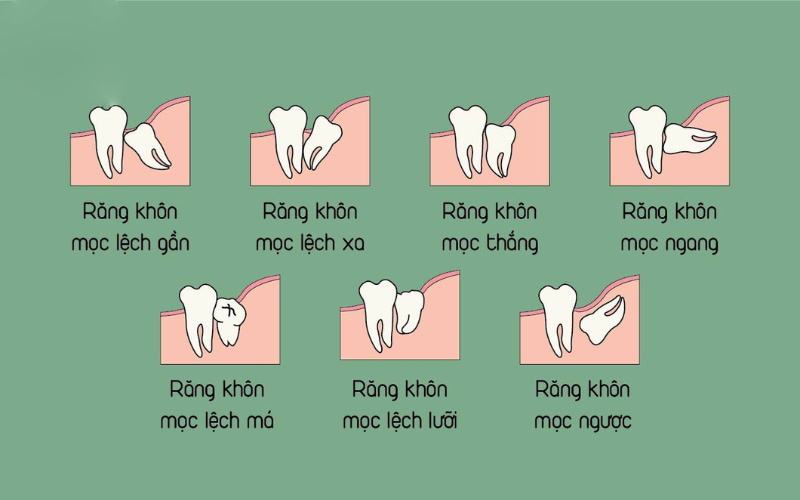
Completely impacted wisdom teeth: These can lead to infection or cysts that damage adjacent roots and support structures, affecting overall oral health.
Partially erupted wisdom teeth: Difficult to clean, they create breeding grounds for bacteria, causing gum disease, oral infections, and other complications.
Crowded wisdom teeth: If the jaw has insufficient space, wisdom teeth may push against other teeth, causing misalignment, bone loss, or even tooth loss. This condition complicates the jaw structure and affects long-term oral health.
Dentists recommend extracting wisdom teeth before the roots and bone are fully formed, promoting faster post-op recovery. Early extraction can help minimize complications and shorten healing time.
According to the American Dental Association, you may need wisdom tooth extraction if you experience:
- Pain
- Recurring infections in the gum behind the lower molars
- Cysts or tumors
- Damage to nearby teeth
- Advanced gum disease or tooth decay
To determine the best treatment, consult with your dentist or oral surgeon about your wisdom teeth.
Wisdom tooth extraction methods
Currently, there are two common extraction methods: traditional and ultrasonic Piezotome technology.
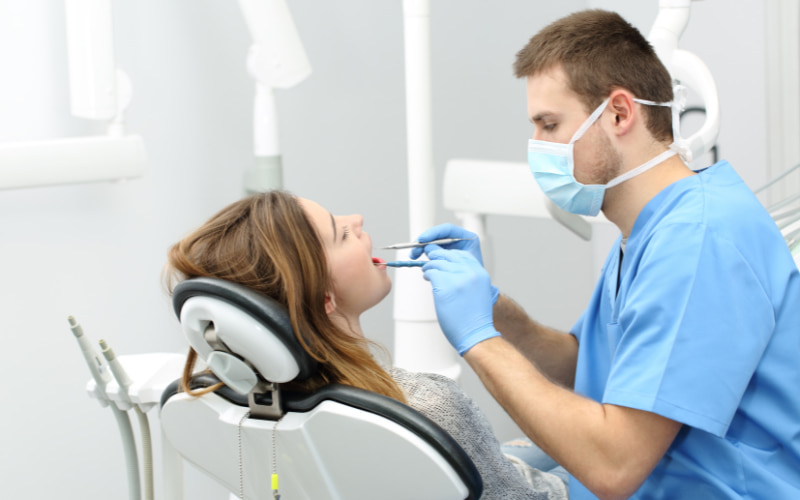
Traditional wisdom tooth extraction
Traditional extraction is a long-established method. Though more modern techniques exist, it remains widely used due to its simplicity and lower cost.
The dentist uses a scalpel to cut the gum and specialized tools to extract the tooth. The advantage is its low cost, but the patient must keep their mouth open for a long time (20–30 minutes), which may lead to bleeding and complications. Therefore, if choosing this method, go to a reputable dental clinic with modern equipment and skilled doctors.
Ultrasonic Piezotome extraction
Extraction with the Piezotome machine (ultrasonic technology) is a modern method praised for its safety and efficiency. The ultrasonic waves help the ultra-thin drill easily cut through gum tissues and remove the tooth. This modern technique has superior advantages: the procedure takes only 10–15 minutes, no complications, no bleeding, and quick recovery.
Standard wisdom tooth extraction process at Amanda Dental Clinic
To ensure safety and minimize risks, Amanda Dental Clinic pays special attention to the consultation and treatment process from the very beginning.
Step 1: You will have a direct consultation with a specialist dentist. To determine the exact condition, the doctor will take X-rays and may request blood tests and blood pressure checks if necessary.
Step 2: If your health is qualified and you agree to proceed, the dentist will clean and disinfect your mouth.
Step 3: To reduce anxiety, the dentist will administer anesthesia.
Step 4: After numbing, the dentist will remove the wisdom tooth in a sterile environment.
- For misaligned teeth: Standard extraction is used.
- For teeth impacted by the second molar: The dentist must separate the impaction to gradually extract the wisdom tooth.
- For fully impacted teeth: An incision will expose the tooth, and periodontal ligaments around it are loosened to extract it.
Once loosened and separated into parts, the tooth is extracted. The area is cleaned and sutured with dissolvable stitches.
Step 5: Finally, the dentist will prescribe painkillers and provide post-op diet and care instructions to promote healing.
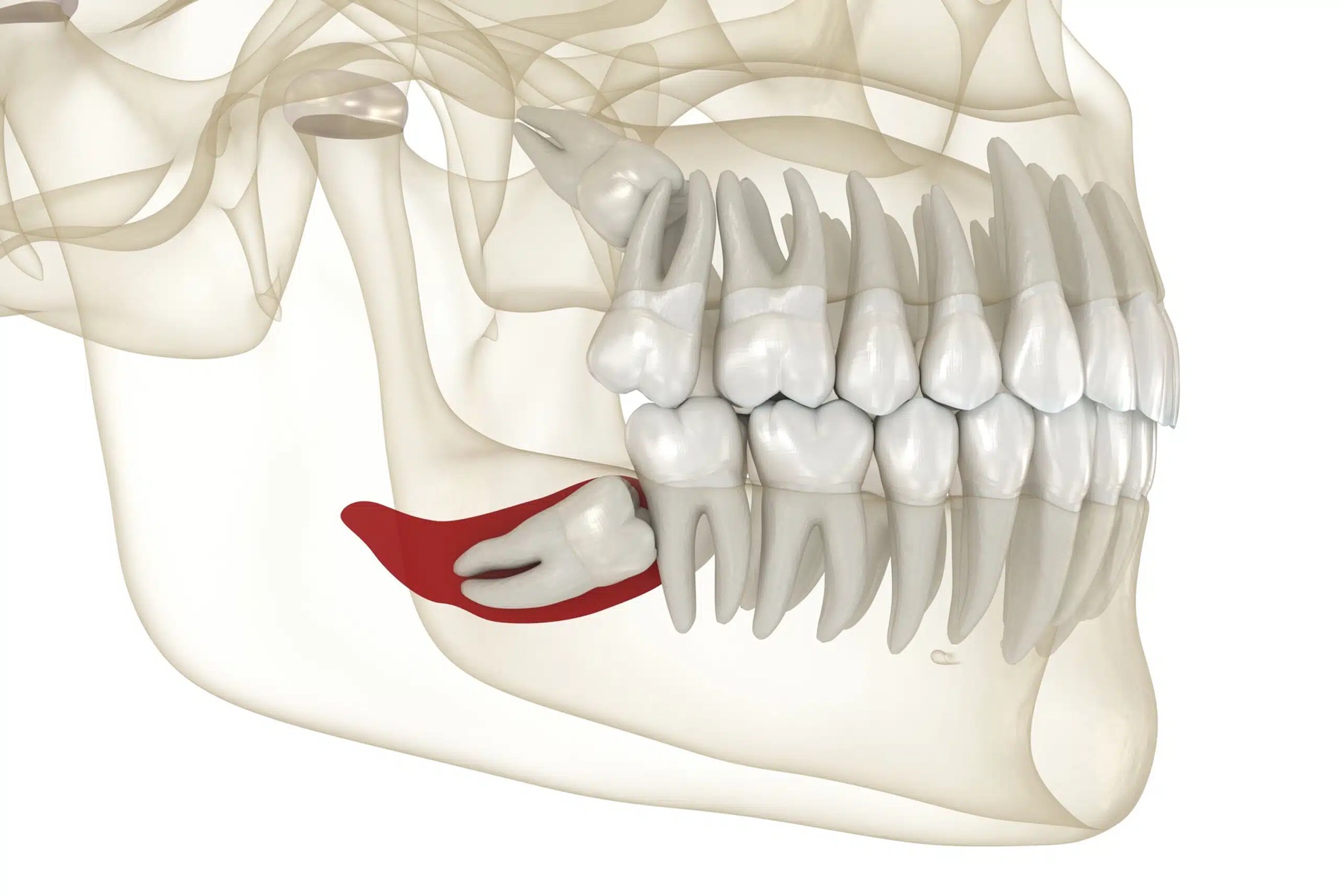
How much does wisdom tooth extraction cost?
The cost of wisdom tooth extraction can vary greatly depending on several factors. These include:
- Tooth difficulty level:
- Tooth position: Teeth that grow straight and are easily accessible will cost less than impacted or deeply embedded teeth.
- Number of roots: Teeth with multiple or complex roots are harder and take longer to remove.
- Tooth condition: Infected, decayed, or otherwise diseased teeth may increase the difficulty and cost of the procedure.
- Extraction method:
- Standard extraction: Applied for straight, uncomplicated teeth.
- Surgical extraction: Needed for impacted or complex-rooted teeth. Surgery is more complicated and requires advanced techniques, thus costing more.
- Piezotome ultrasonic extraction: Uses ultrasonic waves to cut periodontal ligaments, allowing a gentle, minimally invasive extraction with fast recovery. However, this method is typically more expensive than others.
- Doctor’s expertise: Experienced, highly skilled doctors can perform extractions quickly and precisely with minimal complications. However, costs may be higher than with less experienced practitioners.
- Dental clinic facilities and equipment: Reputable clinics with modern, sterilized equipment tend to charge more. Still, they offer better, safer service and reduce risk.
- Geographical location: Wisdom tooth extraction in major cities usually costs more than in rural or smaller areas.
- Additional costs:
- Consultation and X-ray: To assess the tooth and plan treatment.
- Medication: Painkillers and antibiotics after extraction.
- Follow-up visits: To monitor healing and recovery.
Below is a reference price list from our dental clinic:
| WISDOM TOOTH EXTRACTION | ||
| UPPER WISDOM TOOTH EXTRACTION using Piezotome machine | ||
| Level | Price | |
| Level 1 | 1,200,000 | |
| Level 2 | 1,800,000 | |
| Level 3 | 2,500,000 | |
| Level 4 | 3,000,000 | |
| LOWER WISDOM TOOTH EXTRACTION using Piezotome machine | ||
| Level | Price | |
| Level 1 | 1,500,000 | |
| Level 2 | 2,500,000 | |
| Level 3 | 3,000,000 | |
| Level 4 | 4,000,000 | |
| REGULAR TOOTH EXTRACTION | ||
| Extraction of tooth with grade 3 mobility | 500,000 | |
| Extraction of molar with grade 2 mobility | 800,000 | |
| Extraction of molar root | 800,000 | |
Precautions before and after wisdom tooth extraction
Wisdom tooth extraction is a common minor surgery. However, to ensure a smooth process and minimize complications, keep the following pre- and post-operative care guidelines in mind:
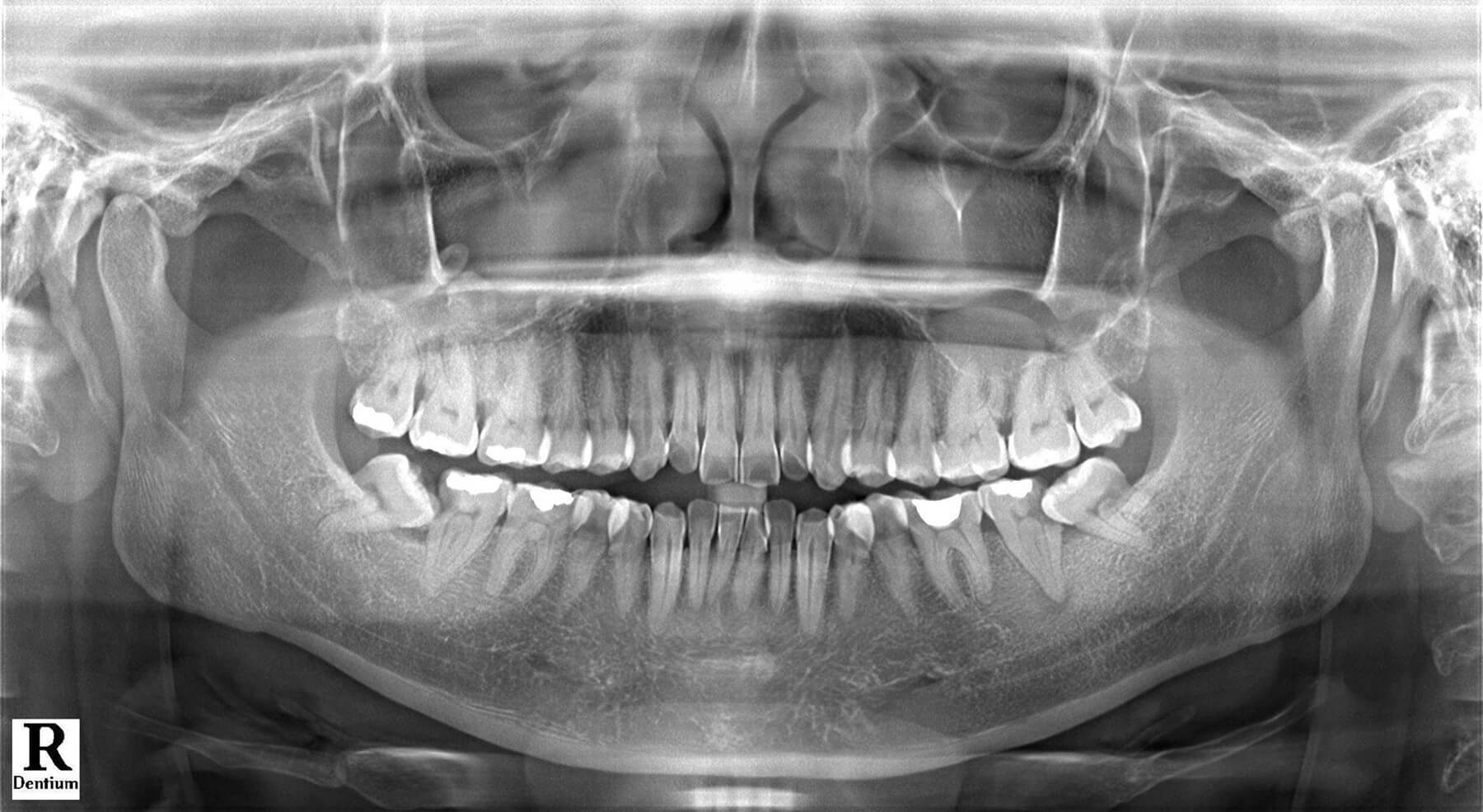
Before extraction
- Choose a reputable clinic and an experienced dentist to ensure a safe and effective procedure.
- Your dentist will check your oral health and take X-rays to assess the position, shape, and direction of the wisdom tooth and select the most suitable extraction method.
- If you have any underlying health issues such as heart disease, diabetes, or bleeding disorders, inform your doctor in advance for proper preparation.
- Eat well before your appointment, as eating may be difficult for a few hours after the procedure.
- Avoid excessive anxiety — stay calm and trust your dentist’s expertise.
- Plan your schedule to allow for proper rest after the extraction.
Aftercare following wisdom tooth extraction
- Follow the dentist’s instructions closely to ensure a smooth recovery process.
- Apply a cold compress within the first 24 hours to reduce bleeding and skin discoloration.
- Switch to warm compresses from the second day to reduce swelling and discomfort.
- Gently exercise the jaw by slowly opening and closing the mouth.
- Eat soft foods such as pasta, rice, or soup.
- Drink plenty of water.
- Start brushing from the second day, skipping the first day, and be careful not to disturb the wound.
- Take prescribed pain relievers or anti-inflammatories as directed.
- If you experience fever or worsening pain/swelling, contact your dentist immediately — it may be a sign of infection.
Avoid the following:
- Avoid vigorous mouth rinsing. Rinse gently with salt water after 24 hours only.
- Avoid hard, crunchy, or sticky foods that could irritate the wound or interfere with healing.
- Do not smoke. Nicotine restricts blood flow and slows the healing process.
Why choose Amanda Dental Clinic for wisdom tooth extraction?
Wisdom tooth extraction is a complex dental procedure requiring thorough examination and evaluation. At Amanda Dental Clinic, each client receives personalized consultation regarding their wisdom teeth condition, suitable treatment options, and detailed post-operative care plans. We are committed to delivering personalized, safe, and effective extraction solutions tailored to each individual’s oral health status.

Ultrasonic technology for wisdom tooth extraction
At Amanda Dental Clinic, we are dedicated to providing a modern and comfortable dental experience for our clients. To achieve this, we have invested in:
- Digital X-ray diagnostic imaging technology:
- Top-tier dental imaging equipment.
- Provides clear, detailed images to help doctors plan treatment accurately and effectively.
- Ultrasonic technology for wisdom tooth extraction:
- Advanced and safe method that minimizes invasiveness and pain.
- Smaller wound area, fast healing, no prolonged discomfort.
- Quick procedure time — only 15–30 minutes — helping eliminate stress and worry.
Highly skilled, experienced doctors
At Amanda Dental Clinic, extractions are performed directly by highly trained doctors to ensure maximum safety and precision. Procedures are conducted cleanly and accurately to avoid deep gum trauma or facial nerve damage.
Sterile-standard dental clinic
Finally, our clinic and dental tools are sterilized using Mocom Classic European Class B sterilization technology. Amanda Dental Clinic aims to bring European standards closer to Vietnamese clients — enhancing the overall service experience.
Is wisdom tooth extraction dangerous?
NO. When performed according to medical standards, wisdom tooth extraction is not dangerous. However, some side effects may occur. Most people experience swelling in the mouth or cheeks after surgery and may not be able to open their mouth fully for several hours or even days.
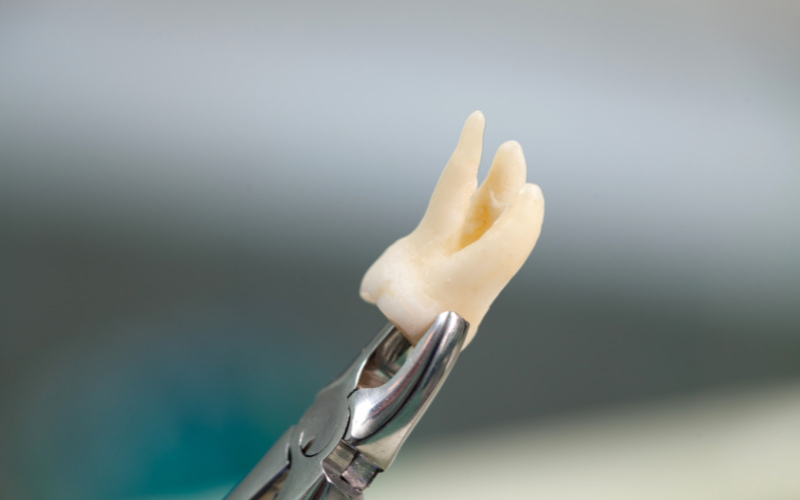
Many people experience pain right after the procedure, but it usually doesn’t last long and is not dangerous. However, if the pain returns after 4–5 days, worsens, and is accompanied by swelling or bad breath, it may indicate infection. Antiseptic mouthwash or gel can help prevent this. Most patients are prescribed antibiotics after extracting impacted wisdom teeth.
Nerves and blood vessels may be affected during the extraction process, causing bleeding or temporary numbness in the tongue or lips. There is also a risk of serious infection if instruments or equipment are not properly sterilized. Therefore, it is essential to choose a reputable medical facility for wisdom tooth extraction to avoid complications.
What happens if you don’t remove your wisdom teeth?
Not removing impacted or misaligned wisdom teeth can lead to numerous oral health problems. Potential issues include:
- Pain and discomfort: Misaligned wisdom teeth can cause aching, swelling, and discomfort when eating or speaking.
- Infection: Impacted or misaligned wisdom teeth can lead to gum inflammation, periodontitis, or even abscesses.
- Damage to adjacent teeth: Misaligned teeth may resorb the roots of neighboring teeth, loosening or damaging them.
- Tooth misalignment: Wisdom teeth may shift surrounding teeth, affecting bite and aesthetics.
- Cysts: In some cases, wisdom teeth may form cysts that destroy jawbone and teeth.
- Difficult hygiene: Located deep in the jaw, wisdom teeth are hard to clean and more prone to decay or infection.
To know your exact condition, visit a dentist for a full examination. They will evaluate your oral health and take X-rays to determine the tooth’s position, shape, and direction. Based on the results, your dentist will offer the most appropriate advice.
Should you remove all 4 wisdom teeth at once?
Yes. Because wisdom teeth are located at the back of the mouth, they easily collect food debris and harmful bacteria, contributing to gum disease, decay, and infections. Even unerupted wisdom teeth can cause similar issues, affecting overall oral health.
It’s generally easier to extract wisdom teeth in young adults, as the roots are not yet fully developed, the surrounding bone is softer, and there’s less risk of damaging nerves or adjacent structures. Post-op complications are also more common in adults.
Advantages of extracting all 4 wisdom teeth at once:
- You undergo surgery only once, reducing trips to the clinic and travel costs.
- Instead of experiencing pain multiple times, you only go through it once.
- You only need to focus on post-op care once.
Disadvantages of extracting all 4 wisdom teeth at once:
- It may cause more pain and swelling than extracting one tooth at a time.
- Eating and daily activities may be more difficult in the first few days post-surgery.
- There may be a higher risk of complications such as infection or dry socket.
Therefore, you should consult with a dentist for a full check-up and personalized recommendation based on your oral and overall health.
Can wisdom teeth grow back after being extracted?
No, extracted wisdom teeth do not grow back. Dentists usually take an X-ray before the procedure to ensure no teeth are left behind.
In summary, wisdom tooth extraction is a critical decision that directly affects your oral health and quality of life. Take time to research carefully, consult with a dental specialist, and choose the most appropriate treatment method to ensure a safe, effective extraction process with minimal complications.




